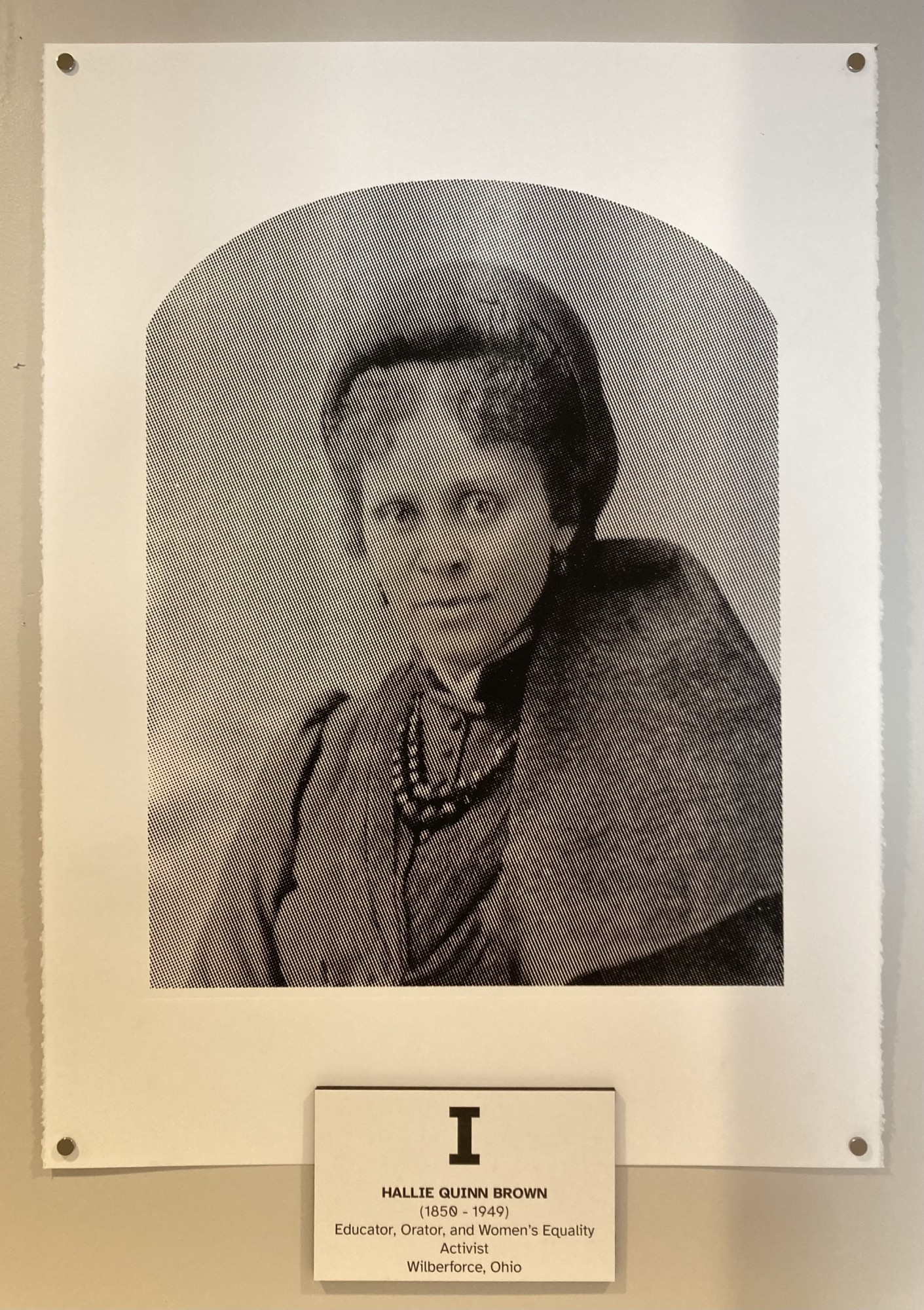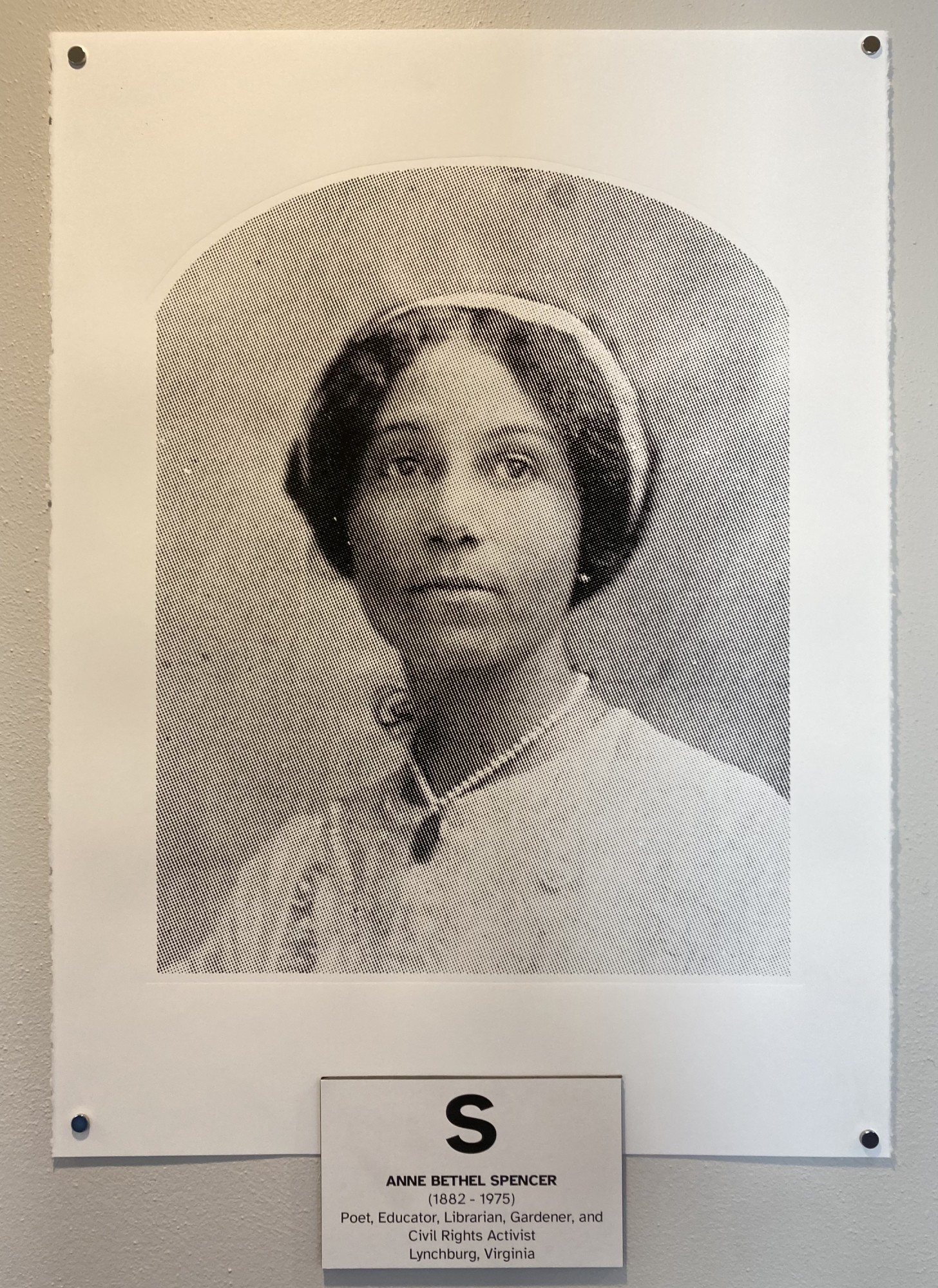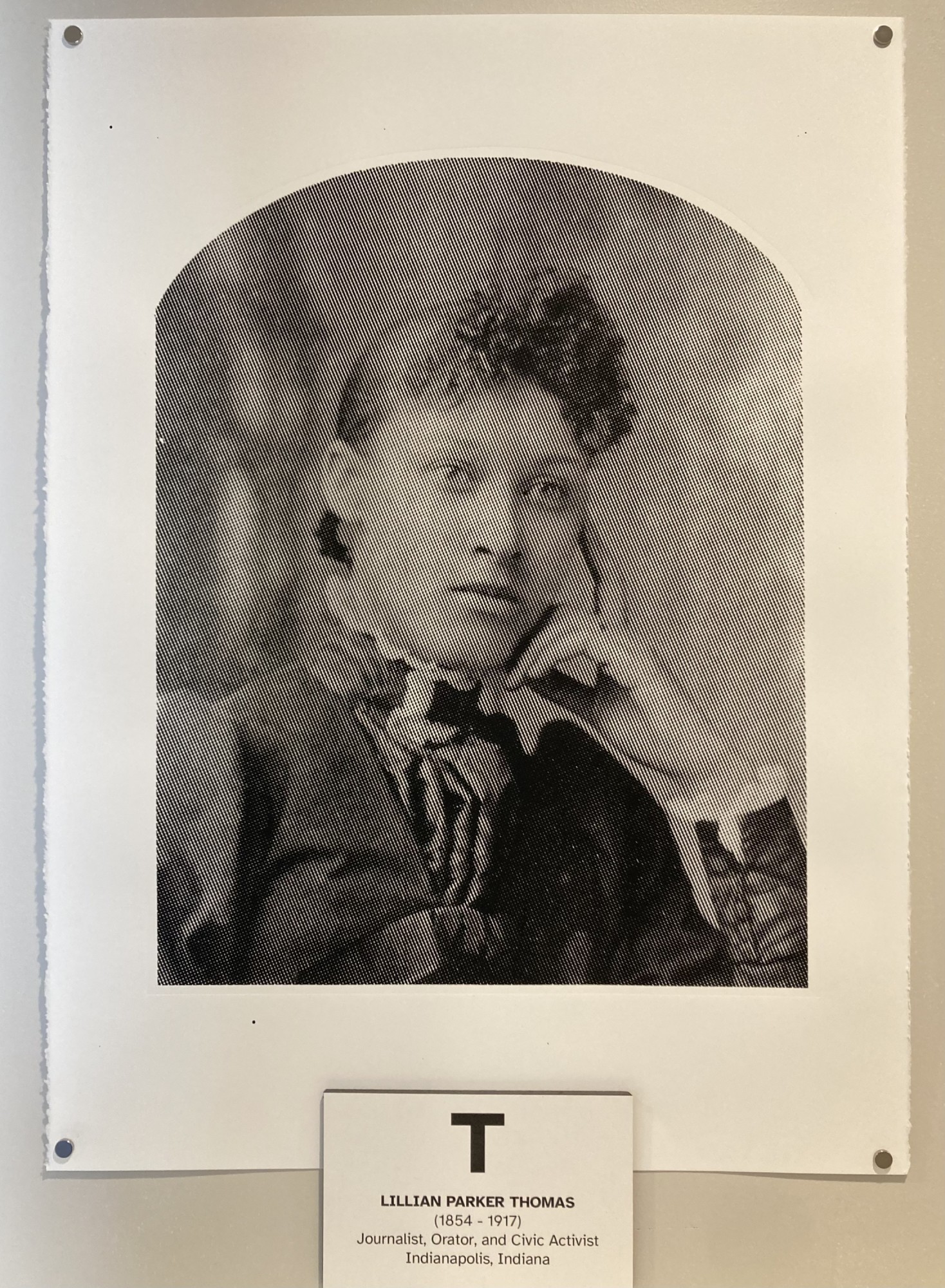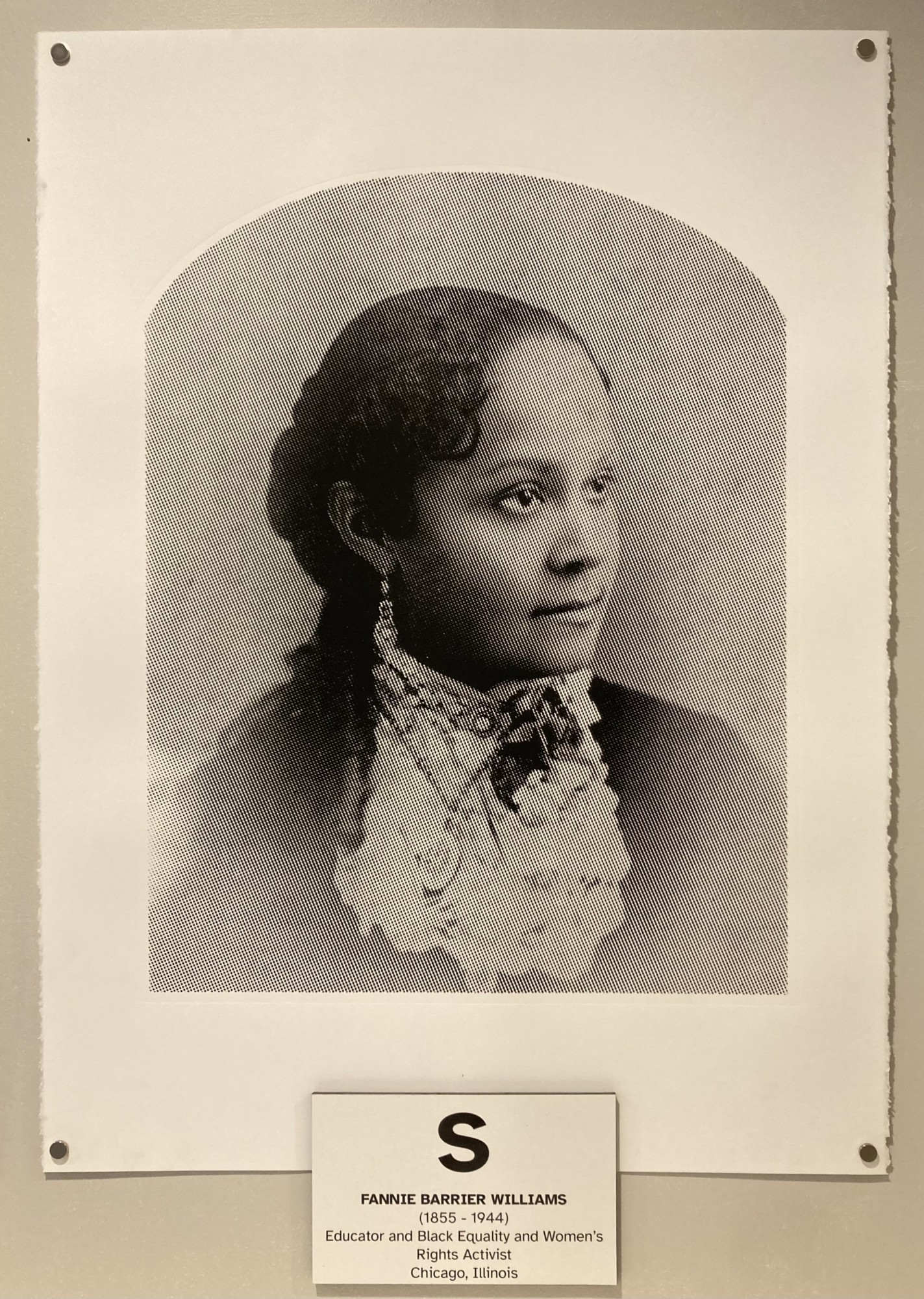|
|
Women of the Week |
|
In this final edition we highlight the last four women in our Art Around the Corner Exhibit, BLACKTIVISTS, located on the 2nd floor hallway. This is an ongoing artwork consisting of silkscreened portraits that depict thirteen relatively unknown and understudied Black women activists. The term "activist" is defined as an energetic and vigorous advocate of a cause, especially a political one.
The majority of these women were born during the time of enslavement in the US, and a few were enslaved at birth. Yet despite and/or because of their social circumstances, these women championed human rights for African Americans at a time when their own racialized and gendered existence remained in jeopardy. With that history in mind, this project features activists from the post-Civil War era whose contributions to the development of African Americans and women's lives then holds a place of relevancy for all Americans today.
Visit this exhibit by Veronica Jackson, Visual Artist, Curator, and Cultural Producer, through the end of the week. Visit Art on 3rd for additional images as a part of this exhibit. Enjoy the artwork of our other studio artists and possibly chat with Veronica as she's working in studio. |
|
|
|
|
|
HALLIE QUINN BROWN (1850 - 1949) Educator, Orator, and Women’s Equality Activist Hallie Quinn Brown was an African American educator and orator who pioneered the movement for African American women’s clubs in the United States. Brown was the daughter of formerly enslaved parents. In 1870 she entered Wilberforce University in Ohio and after graduating in 1873, she taught in plantation and public schools in Mississippi, South Carolina, and Ohio. After public school teaching, Brown served as a principal of Tuskegee Institute in Alabama under founder Booker T. Washington. In 1893 she was appointed professor of elocution at Wilberforce University, but her teaching duties were limited by her frequent and extensive lecture tours, notably in Europe. Her orations on Black life and temperance in the United States were especially popular in Great Britain, where she appeared twice before Queen Victoria. Brown was a speaker at the 1895 convention of the World’s Woman’s Christian Temperance Union in London and a representative of the United States at the International Congress of Women in 1899. |
|
ANNE BETHEL SPENCER (1882 - 1975) Poet, Educator, Librarian, Gardener, and Civil Rights Activist Anne Bethel Spencer was an African American poet, teacher, civil rights activist, librarian, and gardener. She was a prominent figure of the Harlem Renaissance despite living in Virginia for most of her life, far from the center of the movement in New York. Spencer holds an important place as a widely anthologized poet, and was the first Virginian and one of three Black women included in the highly influential Norton Anthology of Modern Poetry (1973). As a civil rights activist for equality and educational opportunities, she and a few close friends revived the Lynchburg chapter of the NAACP. In association with James Weldon Johnson, the branch became fully active with ninety-six members as of July, 1918. Spencer’s home on Pierce Street in Lynchburg became an important center and intellectual salon for guests and dignitaries such as Langston Hughes, Marian Anderson, George Washington Carver, Thurgood Marshall, Martin Luther King Jr., James Weldon Johnson, and W. E. B. Du Bois.
|
|
|
|
LILLIAN PARKER THOMAS (1854 - 1917) Journalist, Orator, and Civic Activist Lillian Parker Thomas was born in Chicago, Illinois, grew up in Oshkosh, Wisconsin, and settled in Indianapolis, Indiana. She became the first African American woman to write for the white Indianapolis press and the only woman on the editorial staff of the Indianapolis Freeman, the first illustrated Black national weekly newspaper. Thomas spent her life writing, speaking, and educating women and men, often discussing issues surrounding the health of the Black community and education for Black women. In addition to civil rights work, Thomas concentrated on suffrage as a means of helping Black women. She was the Indiana State Organizer for the National Association of Colored Women (NACW), an entity that focused on issues such as suffrage, lynching, and civil rights. Thomas also worked closely with Ida B. Wells and the National Afro-American Civil Rights Organization. Her work reflected a commitment to advance the position of African Americans, particularly women, through education and a chance to change society for the better. |
|
FANNIE BARRIER WILLIAMS (1855 - 1944) Educator and Black Equality and Women’s Rights Activist Fannie Barrier Williams believed that her childhood experiences of “social equality” in Brockport, New York ill-prepared her for the racism that she faced later in life. Her growing awareness of the unfair treatment African American women received led her to pursue a lifetime of activism, and strengthened her commitment to improving their lives. Recognizing the lack of services available to Black women, Williams established the National Federation of Afro-American Women with Mary Church Terrell in 1895 and helped found the National Association of Colored Women (NACW) in 1896. These organizations provided kindergartens, mothers’ groups, sewing classes, childcare centers, employment bureaus, and savings banks for women who would not have had access to them elsewhere. Williams befriended W. E. B. Du Bois and was among the founders of the NAACP. Her work to secure women’s rights was recognized upon selection as the only Black woman to eulogize Susan B. Anthony at the National American Women’s Suffrage Association convention in 1907.
|
|
|
|





